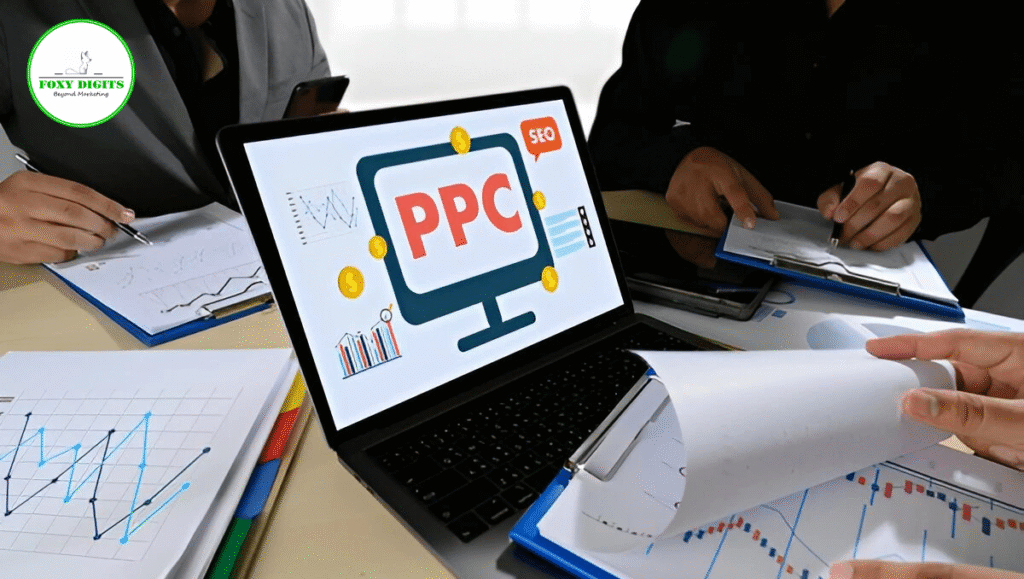- Get 20% Off Your First Month of Digital Marketing Services! Limited Time Offer

Pay-per-click (PPC) advertising is one of the most effective digital marketing tools for driving targeted traffic and generating leads. When managed correctly, platforms like Google Ads can deliver impressive returns. However, PPC can also become a costly experiment if not executed properly. Whether you’re running your campaigns solo or working with a PPC specialist, avoiding common mistakes is crucial to getting the most from your investment in Google Ads management.
One of the biggest mistakes businesses make is diving into PPC without a clear objective. Are you aiming for brand awareness, lead generation, e-commerce sales, or app downloads? Without defined goals, it's impossible to measure success or set the right campaign parameters.
Tip:
Start with SMART goals (Specific, Measurable, Achievable, Relevant, Time-bound). A PPC specialist can help translate those goals into structured campaigns that align with your broader marketing objectives.
Using the wrong keyword match types—or not understanding them—can waste a significant portion of your budget. Broad match may bring in irrelevant traffic, while overly restrictive exact match could limit your reach.
Tip:
Use a mix of match types: exact, phrase, and broad modified. Regularly review search terms reports to refine targeting. Good Google Ads management involves ongoing keyword optimization.
Neglecting negative keywords is like leaving the front door open to unqualified traffic. For example, if you're selling premium software, you may not want to show ads for searches like “free software.”
Tip:
Add negative keywords at the campaign or ad group level. A PPC specialist will proactively monitor irrelevant search terms and adjust your negative keyword list regularly.
Even if your targeting is perfect, poor ad copy can kill your campaign. Weak headlines, vague descriptions, or unclear calls-to-action (CTAs) reduce click-through rates and ad quality scores.
Tip:
Craft compelling ad copy that speaks directly to your target audience’s pain points and includes a strong CTA like “Get a Free Quote” or “Book a Demo Today.” Test different variations using A/B testing as part of your Google Ads management routine.
Driving paid traffic to your homepage or a generic landing page can result in high bounce rates and low conversions. Every ad should link to a page that directly reflects the ad's promise.
Tip:
Create dedicated landing pages tailored to each ad group or campaign. A PPC specialist will ensure alignment between the ad message, keywords, and landing page content.
If you're not tracking what happens after the click, you're flying blind. Without conversion tracking, you can’t tell which ads, keywords, or campaigns are actually driving results.
Tip:
Set up conversion tracking via Google Ads or integrate with tools like Google Analytics. For e-commerce, track purchases; for service businesses, track form fills or phone calls. Effective Google Ads management is rooted in data.
More than half of ad clicks come from mobile devices. If your landing pages aren’t mobile-optimized, you risk losing valuable traffic and conversions.
Tip:
Ensure your website and landing pages are responsive, fast-loading, and easy to navigate on mobile. A PPC specialist will test and monitor mobile performance to optimize your campaigns across devices.
PPC is not a one-time setup. Ads, keywords, bids, and competitors change constantly. Failing to monitor and adjust your campaigns can lead to budget waste and missed opportunities.
Tip:
Schedule regular audits. A dedicated Google Ads management strategy involves continuous monitoring, bid adjustments, ad testing, and budget allocation.
If your product or service is location-specific, failing to use geo-targeting means you're wasting ad spend on people outside your service area.
Tip:
Set location targeting in your campaign settings. A PPC specialist will narrow down locations based on performance data and audience intent.
Google’s Quality Score affects your ad ranking and cost-per-click (CPC). A low score increases your costs while reducing your visibility.
Tip:
Improve your Quality Score by ensuring relevance between your keywords, ad copy, and landing page. Great Google Ads management always factors in Quality Score optimization.
PPC advertising offers huge potential—but only when managed strategically. These common mistakes can easily drain your budget and reduce campaign effectiveness. Whether you're managing your ads in-house or working with a PPC specialist, being aware of these pitfalls will help you make smarter decisions.
For businesses serious about long-term success with paid search, professional Google Ads management is more than a luxury—it’s a necessity. With the right expertise and a solid strategy, you can avoid costly errors and start generating real, measurable results from your PPC campaigns.